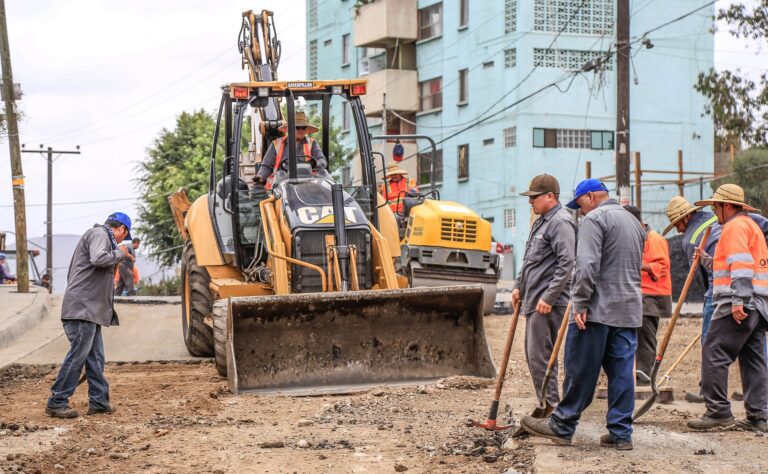Regular hours are Monday – Friday, 9 am to 5 pm.
Other times are available by appointment, so don’t hesitate to give me a call.
It’s even worse when your employer and their workers comp insurance provider aren’t seeing your injuries from your point of view.
If your efforts to get better are getting you nothing but the run-around, talking with an experienced workers’ compensation attorney is your best bet.
Call me, Glenn Steeg, the approachable workers comp attorney, the most successful courtroom workers comp attorney in southwest Michigan … with over 30 years experience helping people injured at work get the full workers comp benefits they deserve.
I want to hear about the situation you find yourself in, answer your workers comp questions & give you professional legal advice you can act on.
I’ve single-handedly recovered millions of dollars in workers comp claims for my clients … so I’ve seen employers try just about every trick in the book to avoid paying fully for the injuries their work environments caused.
And I’m not opposed to calling excuses, avoidance tactics, and job reassignment shortcuts when I see them.
So if your workers comp claim is going nowhere fast, give me a call.
Whether we work together or not, I’ll give you my honest legal opinion & advice about your next steps.
The call is free, the legal advice you get will be invaluable. Call now.

There can be lots of different reasons why legitimate work injury accident claims are denied coverage through employers’ workers compensation insurance. None of them are particularly good – and they almost always have to do with business, not with people.
So try not to take it personally … but don’t take it lying down, either!
If you were legitimately injured in a work accident, your claim may have been denied because the insurance provider found:
• there were no witnesses, or witnesses’ stories contradicted each other
• no physical evidence was consistent with your claim
• physical evidence and/or witnesses were tampered with
• your social media posts were found to be inconsistent with your injury claim.
Employers may also have personal biases, want to avoid embarrassment due to having someone get injured in their workplace, not want to deal with the extra reporting and paperwork hassles, or simply be dishonest. They will also be motivated to try to save money.
If all that sounds like the deck may be stacked against you when making a workers comp injury claim, guess what? It is!
Workers comp claim denials – particularly for claims involving extended periods away from work – are sadly commonplace. And it’s not a good idea to take on both your employer and their insurance company on your own … especially when you’re trying to recover.
That’s why you need an experienced work accident injury lawyer who can put the law on your side.
Your rights are worth a free phone call!

Fill out this quick & easy form for your no cost, no obligation claim review from a winning workers comp attorney near you!



Regular hours are Monday – Friday, 9 am to 5 pm.
Other times are available by appointment, so don’t hesitate to give me a call.
It’s even worse when your employer and their workers comp insurance provider aren’t seeing your injuries from your point of view.
If your efforts to get better are getting you nothing but the run-around, talking with an experienced workers’ compensation attorney is your best bet.
Call me, Glenn Steeg, the approachable workers comp attorney, and the most successful courtroom workers comp attorney in southwest Michigan … with over 30 years experience helping people injured at work get the full workers comp benefits they deserve.
I want to hear about the situation you find yourself in, answer your workers comp questions & give you professional legal advice you can act on.
I’ve single-handedly recovered multiple millions of dollars in workers comp claims for my clients … so I’ve seen employers try just about every trick in the book to avoid paying fully for the injuries their work environments caused.
And I’m not opposed to calling excuses, avoidance tactics, and job reassignment shortcuts when I see them.
So if your workers comp claim is going nowhere fast, give me a call.
Whether we work together or not, I’ll give you my honest legal opinion & advice about your next steps.
The call is free; the legal advice you get will be invaluable. Call now.

Fill out this quick & easy form for your no cost, no obligation case review from an experienced west Michigan personal injury attorney!

There can be lots of different reasons why legitimate work injury accident claims are denied coverage through employers’ workers compensation insurance. None of them are particularly good – and they almost always have to do with business, not with people.
So try not to take it personally … but don’t take it lying down, either!
If you were legitimately injured in a work accident, your claim may have been denied because the insurance provider found:
• there were no witnesses, or witnesses’ stories contradicted each other
• no physical evidence was consistent with your claim
• physical evidence and/or witnesses were tampered with
• your social media posts were found to be inconsistent with your injury claim.
Employers may also have personal biases, want to avoid embarrassment due to having someone get injured in their workplace, not want to deal with the extra reporting and paperwork hassles, or simply be dishonest. They will also be motivated to try to save money.
If all that sounds like the deck may be stacked against you when making a workers comp injury claim, guess what? It is!
Workers comp claim denials – particularly for claims involving extended periods away from work – are sadly commonplace. And it’s not a good idea to take on both your employer and their insurance company on your own … especially when you’re trying to recover.
That’s why you need an experienced work accident injury lawyer who can put the law on your side.
Your rights are worth a free phone call!

When you’re dealing with workers comp injury claims, you’re often working at cross purposes with both your employer and their insurance company – both of whom are trying to reduce their costs of doing business:
• the fewer workers compensation claims your employer makes, the less expensive their workers comp insurance may be (Michigan law requires them to carry workers comp insurance, so it is not a voluntary expense).
• the fewer and less costly workers comp claims your employer’s insurance company pays out in benefits, the more the insurance company keeps in profits.
So when you’re injured during the course of the that work you do, it can be an uphill battle to get the full compensation you’re due for your injuries – including the cost of your immediate medical care and lost wages, as well as the cost of your future care and lost wages, depending on the extent and severity of your injuries.
 Even with a less severe injury, you may get some compensation, but without the help of an experienced workers comp attorney, no one will ever tell you how much you’re leaving on the table. It’s not in your employer’s or their insurance provider’s best interests to tell you, and they aren’t required to under Michigan law.
Even with a less severe injury, you may get some compensation, but without the help of an experienced workers comp attorney, no one will ever tell you how much you’re leaving on the table. It’s not in your employer’s or their insurance provider’s best interests to tell you, and they aren’t required to under Michigan law.
So how do you make sure you’re getting the full benefits you deserve for your work injury claim?
• FIRST, FOLLOW THE RULES:
– report your workplace injury in writing right away (at minimum, send an email to your supervisor), stating what your injury is, when it happened, and what caused it. Photos are also helpful if you or a supportive colleague can take them.
– ask anyone who witnessed the incident for a written statement stating the injury happened while you were on the job.
– under no circumstances make light of or downplay your injury, even to reassure colleagues and coworkers. Those statements can come back on you during investigations and the legal process.
 • SECOND, GET YOURSELF TO A DOCTOR:
• SECOND, GET YOURSELF TO A DOCTOR:
– You are required to ask to see the company doctor. If your company doesn’t have a company doctor, get yourself to a doctor of your choice right away; any delay will make it appear your injury isn’t that big of a deal. Your doctor’s report will do the talking for you, so the less you say to others the better.
– follow your doctors instructions. If physical therapy is prescribed, do it. If you need a surgical consult, get one.
– keep your employer informed about your medical appointments.
• THIRD, TALK WITH AN EXPERIENCED WORKERS COMP ATTORNEY:
– it’s a free consultation, and the more information you’re armed with, the better off you’ll be.
– based on your free consultation, an experienced workers comp attorney may suggest you make a free appointment for an in-person consultation to get the specifics of your particular situation and guide you on what further steps you should take.
– Your workers comp claim may go seamlessly … and it may not.
– Your interests will be best served by talking with an experienced workers comp attorney from the start, so he or she knows the entire history should medical complications, employer resistance, or claim denials come up later.
When you’re dealing with workers comp injury claims, you’re often working at cross purposes with both your employer and their insurance company – both of whom are trying to reduce their costs of doing business:
• the fewer workers compensation claims your employer makes, the less expensive their workers comp insurance may be (Michigan law requires them to carry workers comp insurance, so it is not a voluntary expense).
• the fewer and less costly workers comp claims your employer’s insurance company pays out in benefits, the more the insurance company keeps in profits.
So when you’re injured during the course of the that work you do, it can be an uphill battle to get the full compensation you’re due for your injuries – including the cost of your immediate medical care and lost wages, as well as the cost of your future care and lost wages, depending on the extent and severity of your injuries.
 Even with a less severe injury, you may get some compensation, but without the help of an experienced workers comp attorney, no one will ever tell you how much you’re leaving on the table. It’s not in your employer’s or their insurance provider’s best interests to tell you, and they aren’t required to under Michigan law.
Even with a less severe injury, you may get some compensation, but without the help of an experienced workers comp attorney, no one will ever tell you how much you’re leaving on the table. It’s not in your employer’s or their insurance provider’s best interests to tell you, and they aren’t required to under Michigan law.
So how do you make sure you’re getting the full benefits you deserve for your work injury claim?
• FIRST, FOLLOW THE RULES:
– report your workplace injury in writing right away (at minimum, send an email to your supervisor), stating what your injury is, when it happened, and what caused it. Photos are also helpful if you or a supportive colleague can take them.
– ask anyone who witnessed the incident for a written statement stating the injury happened while you were on the job.
– under no circumstances make light of or downplay your injury, even to reassure colleagues and coworkers. Those statements can come back on you during investigations and the legal process.
 • SECOND, GET YOURSELF TO A DOCTOR:
• SECOND, GET YOURSELF TO A DOCTOR:
– You are required to ask to see the company doctor. If the company doesn’t have a company doctor, get yourself to a doctor of your choice right away; any delay will make it appear your injury isn’t that big of a deal. Your doctor’s report will do the talking for you, so the less you say to others the better.
– follow your doctors instructions. If physical therapy is prescribed, do it. If you need a surgical consult, get one.
– keep your employer informed about your medical appointments.
• THIRD, TALK WITH AN EXPERIENCED WORKERS COMP ATTORNEY:
– it’s a free consultation, and the more information you’re armed with, the better off you’ll be.
– based on your free consultation, an experienced workers comp attorney may suggest you make a free appointment for an in-person consultation to get the specifics of your particular situation and guide you on what further steps you should take.
– Your workers comp claim may go seamlessly … and it may not.
– Your interests will be best served by talking with an experienced workers comp attorney from the start, so he or she knows the entire history should medical complications, employer resistance, or claim denials come up later.
No, you don’t have to work in heavy construction to get injured at work.
Work injuries happen all the time, in all kinds of workplaces. In fact, according to the National Safety Council, 540 workplace injuries happen every hour in the US! That’s nearly 13,000 work accident injuries per day, and a whopping 7 million work injuries per year!
 And the most common workplace injuries aren’t necessarily caused by the most dangerous jobs!
And the most common workplace injuries aren’t necessarily caused by the most dangerous jobs!
THE MOST COMMON WORKPLACE INJURIES INCLUDE:
• repetitive motion injuries • neck and spine injuries • broken bones and dislocations • muscle, tendon and ligament tears, sprains & strains, and inflammation • electrocutions • concussions and other traumatic brain injuries • and many other common personal injuries.
Work injuries are costly to everyone: employee, employer, and insurance provider alike.
And whenever big costs are involved, so is big scrutiny. That’s why no matter what kind of work injury you’ve suffered, it’s going to be looked at very closely.
Not sure your work injury qualifies for legal help, or how to protect your rights if your claim was refused?
Keep reading to learn more!
Better yet, give me a call and let’s get this figured out!
Most employers want their injured employees back to work as quickly as possible – whether it’s in the employee’s best medical interest or not.
Sometimes, though, the extent of a workplace injury or complications with recovery put employers in the position of needing to come up with an alternative solution.
And that could spell trouble for you …
Here are a few ways to tell if your employer isn’t supportive of your workers comp claim:
• They are slow to answer your questions: they used to show concern, but lately you get the feeling they have better things to do.
• They tell you to contact the insurance company directly.
• They reassign you to keep you employed, but cut your hours hoping your less-than-livable wage will force you to quit.
• They provide less-than-honest information to the insurance company … saying, for example, your injury didn’t happen during working hours, or it isn’t that serious because they saw your recent social media post and it’s obvious you’re not really injured.
• They claim your injury doesn’t require you to be off work to recover.
Need an expert workers comp attorney to help you sort it out?
Email me and let’s spell out your next steps and get you headed in a clear direction!

No, you don’t have to work in heavy construction to get injured at work.
Work injuries happen all the time, in all kinds of workplaces. In fact, according to the National Safety Council, 540 workplace injuries happen every hour in the US! That’s nearly 13,000 work accident injuries per day, and a whopping 7 million work injuries per year!
 And the most common workplace injuries aren’t necessarily caused by the most dangerous jobs!
And the most common workplace injuries aren’t necessarily caused by the most dangerous jobs!
THE MOST COMMON WORKPLACE INJURIES INCLUDE:
su• repetitive s motion injuries • neck and spine injuries • broken bones and dislocations • muscle, tendon and ligament tears, strains, and inflammation • concussions and other traumatic brain injuries • cuts, abrasions and lacerations • electrocutions • and many other common personal injuries.
Work injuries are costly to everyone: employee, employer, and insurance provider alike. And whenever big costs are involved, so is big scrutiny. That’s why no matter what kind of work injury you’ve suffered, it’s going to be looked at very closely.
Not sure your work injury qualifies for legal help, or how to protect your rights if your claim was refused? Keep reading to learn more!
Better yet, give me a call and let’s get this figured out!

Most employers want their injured employees back to work as quickly as possible – whether it’s in the employee’s best medical interest or not.
Sometimes, though, the extent of a workplace injury or complications with recovery put employers in the position of needing to come up with an alternative solution.
And that could spell trouble for you …
Here are a few ways to tell if your employer isn’t supportive of your workers comp claim:
• They are slow to answer your questions: they used to show concern, but lately you get the feeling they have better things to do.
• They tell you to contact the insurance company directly.
• They reassign you to keep you employed, but cut your hours hoping your less-than-livable wage will force you to quit.
• They provide less-than-honest information to the insurance company … saying, for example, your injury didn’t happen during working hours, or it isn’t that serious because they saw your recent social media post and it’s obvious you’re not really injured.
• They claim your injury doesn’t require you to be off work to recover.
Need a workers comp expert attorney to help you sort it out? Email me and let’s get you headed in a clear direction!
Michigan law requires employers to carry workers compensation insurance to provide compensation to employees who get injured or become ill due to certain exposure while on the job. The law provides different types of compensation depending on the severity of the injury or illness and how long the person will be unable to work. Available workers comp benefits, in increasing order of injury or illness exposure, are explained below:

Under Michigan workers comp law, your medical benefits should be available from the day you were injured. Michigan workers compensation law allows your employer to send you to their company doctor for the first 28 days (if your employer doesn’t have a company doctor, then you are free to choose your own doctor during that period).
Under Michigan workers compensation law, you do not qualify for lost wages until you have been out of work for 7 days (including weekends). If you are still out of work due to your injury or illness on day 8, you can begin receiving lost wage benefits. If you are still out of work on day 14, you are also eligible to be compensated for your first 7 days out of work due to your injury or environmental illness.
If you are the primary wage earner in your household and become injured or ill due to exposure while at work, Michigan workers comp lost wages benefit may be increased for immediate family members who are financially dependent on you and were living with you at the time of your work injury. Examples include children under 18, or over age 18 if a physical or mental impairment prevents them from being able to work. More information about dependent benefits under Michigan workers comp law can be found here.
Your injury may require physical and/or occupational rehabilitation, which Michigan law requires your company’s workers comp policy to cover.
You have the right to be reimbursed for mileage to any medical appointment deemed necessary for your recovery. If your injury or illness requires multiple doctor appointments or seeing an out-of-town specialist, you will want to keep a medical mileage log (state the date and the who, what, where and why in addition to your mileage back & forth) to be reimbursed. Current Michigan medical milage reimbursement rates are available here.
If your injury prevents you from returning to your previous occupation, the law requires your employer to provide vocational benefits, in which training and educational benefits are provided to give you a new employable skill set. Most of the time, you will need to have an active workers comp claim to be eligible for vocational benefits.
Be advised, you are likely to have to ask your employer for vocational rehabilitation benefits; they are rarely offered due to the added expense the employer and its insurance company incur.
There is no short-term disability provided for injured employees under Michigan workers compensation law. The law provides for lost wages if your injury causes you to miss work for two weeks to several months, so short-term disability isn’t required.
Some employers, though, carry short-term disability policies on their own, and prefer to compensate their employee’s wages out of that because it is less expensive. Don’t let your employer put their needs ahead of yours, and don’t agree to short-term disability in lieu of workers comp lost wages without doing the math.
Should your workers comp wage claim be refused or disputed by your employer, you can apply for short-term disability while you’re waiting for your claim to be resolved. If the claim is resolved in your favor, you are entitled to the lost wages benefit provided by workers comp for the weeks during which your claim was in dispute, and you will be required to give back your short-term disability benefits (the law does not provide for collecting both).
Where injuries are severe enough to require lengthy recovery times, your employer may have long-term disability benefits for specific periods of time.
Should your injuries be severe enough to affect your wage-earning ability, you may be entitled to ongoing workers comp wage loss benefits.
You may have a right to attendant care services as a result of your workplace injury, whether provided by an outside agency or a family member.
You may have one or more personal injury claims against third parties, which are separate from yet related to your workers comp claim. For example, if you were driving as part of your job and got sideswiped by a negligent driver, you may be able to sue that driver’s insurance company for pain & suffering, as well as other economic damages, which are not compensated under Michigan workers comp law.
Only an experienced personal injury attorney with extensive workers comp success will be able to help you understand what additional claims you may be able to make, so call one for a free workers comp consultation. After all, knowledge is power!

Michigan law requires employers to carry workers compensation insurance to provide compensation to employees who get injured or become ill due to certain exposure while on the job. The law provides different types of compensation depending on the severity of the injury or illness and how long the person will be unable to work. Available workers comp benefits, in increasing order of injury severity, are explained below:
Under Michigan workers comp law, your medical benefits should be available from the day you were injured. Michigan workers compensation law allows your employer to send you to their company doctor for the first 28 days (if your employer doesn’t have a company doctor, then you are free to choose your own doctor during that period).
Under Michigan workers compensation law, you do not qualify for lost wages until you have been out of work for 7 days (including weekends). If you are still out of work due to your injury or illness on day 8, you can begin receiving lost wage benefits. If you are still out of work on day 14, you are also eligible to be compensated for your first 7 days out of work due to your injury or environmental illness.
If you are the primary wage earner in your household and become injured or ill due to exposure while at work, Michigan workers comp lost wages benefit may be increased for immediate family members who are financially dependent on you and were living with you at the time of your work injury. Examples include children under 18, or over age 18 if a physical or mental impairment prevents them from being able to work. More information about dependent benefits under Michigan workers comp law can be found here.
Your injury may require physical and/or occupational rehabilitation, which Michigan law requires your company’s workers comp policy to cover.
You have the right to be reimbursed for mileage to any medical appointment deemed necessary for your recovery. If your injury or illness requires multiple doctor appointments or seeing an out-of-town specialist, you will want to keep a medical mileage log (state the date and the who, what, where and why in addition to your mileage back & forth) to be reimbursed. Current Michigan medical milage reimbursement rates are available here.
If your injury prevents you from returning to your previous occupation, the law requires your employer to provide vocational benefits, in which training and educational benefits are provided to give you a new employable skill set. Most of the time, you will need to have an active workers comp claim to be eligible for vocational benefits.
Be advised, you are likely to have to ask your employer for vocational rehabilitation benefits; they are rarely offered due to the added expense the employer and its insurance company incur.
There is no short-term disability provided for injured employees under Michigan workers compensation law. The law provides for lost wages if your injury causes you to miss work for two weeks to several months, so short-term disability isn’t required.
Some employers, though, carry short-term disability policies on their own, and prefer to compensate their employee’s wages out of that because it is less expensive. Don’t let your employer put their needs ahead of yours, and don’t agree to short-term disability in lieu of workers comp lost wages without doing the math.
Should your workers comp wage claim be refused or disputed by your employer, you can apply for short-term disability while you’re waiting for your claim to be resolved. If the claim is resolved in your favor, you are entitled to the lost wages benefit provided by workers comp for the weeks during which your claim was in dispute, and you will be required to give back your short-term disability benefits (the law does not provide for collecting both).
Where injuries are severe enough to require lengthy recovery times, your employer may have long-term disability benefits for specific periods of time.
Should your injuries be severe enough to affect your wage-earning ability, you may be entitled to ongoing workers comp wage loss benefits.
You may have a right to attendant care services as a result of your workplace injury, whether provided by an outside agency or a family member.
You may have one or more personal injury claims against third parties, which are separate from yet related to your workers comp claim. For example, if you were driving as part of your job and got sideswiped by a negligent driver, you may be able to sue that driver’s insurance company for pain & suffering, as well as other economic damages, which are not compensated under Michigan workers comp law.
Only an experienced personal injury attorney with extensive workers comp success will be able to help you understand what additional claims you may be able to make, so call one for a free workers comp consultation. After all, knowledge is power!
There’s a big difference between general attorneys – those who work in a variety of legal fields including workers comp – and those who specialize in workers comp injury claims. Your interests will be best served by an experienced trial attorney for whom workers comp injury cases are a primary practice focus.
This is important based on your personal preferences about going to court or settling out of court. Either way, it’s likely a lawsuit will need to be filed in order to let your employer’s insurance company know you’re serious. Michigan workers comp attorneys with extensive courtroom experience are well known by insurance adjusters, and tend to carry more weight with them. That’s an obvious advantage if you’re going to court, and it helps strengthen your negotiating position when working out an out-of-court settlement as well.
Negligence – even your own – in causing a workplace injury is not applicable in workers compensation cases. If you were injured due to your own negligence, you are still entitled to workers comp potential benefits.
An honest workers comp attorney isn’t going to be able to give you a straightforward answer to this question. No two workers comp injuries, employers, insurance adjusters or cases are alike, so there’s no accurate way to predict any individual cases’ timeline. That’s why it’s important to choose a Michigan workers comp attorney who will keep you updated as things develop.
Fears and worries always accompany workers comp claims, especially when claims are denied or you’re still out of work. You and your Michigan workers comp attorney need to have open communication as often as you wish. He or she should be proactive in updating you as soon as there are any significant developments. When you can trust your workers comp attorney to do that, it takes the burden of worry off your shoulders – so you can focus on recovering. You may not feel the need to call as often, and your workers comp attorney should welcome every call from you he or she receives.
While workers comp attorneys don’t get paid until after your case in concluded, there are generally some out-of-pocket costs that will be deducted after a financial recovery is made on your case. Expenses are typically related to medical records and deposition fees charged by doctors for their testimony.
Whether a workers comp case is won or not really depends on the client’s definition of a win, not on the attorney’s (except in cases that go to trial where there’s a verdict).
Some attorneys define anything above what the workers comp insurance company offered as win for their client. You may be better served by asking how many successful court verdicts an attorney has won – and what percentage of their total workers comp cases those verdicts represent.
That’s because attorneys who are known for avoiding trials in court are in a weaker position with insurance companies … whereas a trial attorney like me, who’s tried more workers comp cases than any other area attorney and won at least 95% of them, is known as a formidable trial opponent.
Choosing a winning trial attorney puts your case in its strongest position right from the start, because lawyers with successful records of trying and winning Michigan workers comp cases traditionally receive more money in compensation for their clients based on the strength of their reputation.
There are lots of challenges that come up during a workers comp claim – some from the insurance company, some from your own emotions. You want to work with an attorney who’s hands-on, not getting information second-hand. This is because it’s your worker comp attorney’s job to know the details of your case as they occur, and be able to communicate them to you in a way that helps you keep things in perspective.
An experienced workers comp attorney should be able to clearly and logically spell out the general stages of your workers comp claim – even the “if/then” points that can’t be predicted in advance. Other things like how often you’ll be updated, your preferred method of communication, and how long you should expect to wait for in-person meetings should also be covered.
There’s a big difference between general attorneys – those who work in a variety of legal fields including workers comp – and those who specialize in workers comp injury claims. Your interests will be best served by an experienced trial attorney for whom workers comp injury cases are a primary practice focus.
This is important based on your personal preferences about going to court or settling out of court. Either way, it’s likely a lawsuit will need to be filed in order to let your employer’s insurance company know you’re serious. Michigan workers comp attorneys with extensive courtroom experience are well known by insurance adjusters, and tend to carry more weight with them. That’s an obvious advantage if you’re going to court, and it helps strengthen your negotiating position when working out an out-of-court settlement as well.
Negligence – even your own – in causing a workplace injury is not applicable in workers compensation cases. If you were injured due to your own negligence, you are still entitled to workers comp potential benefits.
An honest workers comp attorney isn’t going to be able to give you a straightforward answer to this question. No two workers comp injuries, employers, insurance adjusters or cases are alike, so there’s no accurate way to predict any individual cases’ timeline. That’s why it’s important to choose a Michigan workers comp attorney who will keep you updated as things develop.
Fears and worries always accompany workers comp claims, especially when claims are denied or you’re still out of work. You and your Michigan workers comp attorney need to have open communication as often as you wish. He or she should be proactive in updating you as soon as there are any significant developments. When you can trust your workers comp attorney to do that, it takes the burden of worry off your shoulders – so you can focus on recovering. You may not feel the need to call as often, and your workers comp attorney should welcome every call from you he or she receives.
While workers comp attorneys don’t get paid until after your case in concluded, there are generally some out-of-pocket costs that will be deducted after a financial recovery is made on your case. Expenses are typically related to medical records and deposition fees charged by doctors for their testimony.
Whether a workers comp case is won or not really depends on the client’s definition of a win, not on the attorney’s (except in cases that go to trial where there’s a verdict).
Some attorneys define anything above what the workers comp insurance company offered as win for their client. You may be better served by asking how many successful court verdicts an attorney has won – and what percentage of their total workers comp cases those verdicts represent.
That’s because attorneys who are known for avoiding trials in court are in a weaker position with insurance companies … whereas a trial attorney like me, who’s tried more workers comp cases than any other area attorney and won at least 95% of them, is known as a formidable trial opponent.
Choosing a winning trial attorney puts your case in its strongest position right from the start, because lawyers with successful records of trying and winning Michigan workers comp cases traditionally receive more money in compensation for their clients based on the strength of their reputation.
There are lots of challenges that come up during a workers comp claim – some from the insurance company, some from your own emotions. You want to work with an attorney who’s hands-on, not getting information second-hand. This is because it’s your worker comp attorney’s job to know the details of your case as they occur, and be able to communicate them to you in a way that helps you keep things in perspective.
An experienced workers comp attorney should be able to clearly and logically spell out the general stages of your workers comp claim – even the “if/then” points that can’t be predicted in advance. Other things like how often you’ll be updated, your preferred method of communication, and how long you should expect to wait for in-person meetings should also be covered.


















I’ve personally generated over $200 million in results for my clients, including several million dollar and multi-million dollar verdicts and settlements.
Personal Injury Law is my ONLY focus. One hundred percent of my practice is devoted to protecting the rights of injured people and getting them the compensation they deserve, and workers comp law has been a primary practice focus of mine for over 30 years.
As a personal injury attorney who specializes in workers comp claims, I have won more workers comp court cases than any other attorney in west Michigan, securing millions on behalf of injured employees.
I have decades of experience practicing personal injury law, having helped over a thousand clients earn every penny they deserve for their injury claims.
My workers comp experience is deep, rich, and varied, allowing me to finely hone my instincts for Michigan injury law and maximize a wide variety of my clients’ workers comp claims – many of which could be overlooked by a less experienced workers comp attorney.
Unlike in larger firms where cases can be delegated to less experienced attorneys, my clients get my complete involvement in every aspect of their workers comp claims. No junior partners, no case quotas to meet … my focus is on taking the very best care of the clients I have, not chasing the next case or worrying about where it is coming from.
I am passionate about getting injured people the fullest compensation under Michigan law for their injuries. When I take your workers comp case, I am 100% personally handling every aspect of it. I would not have it any other way.
I recognize that people who are dealing with serious work injuries are frequently stressed, overwhelmed, lost or confused. I put the highest value on treating all my workers comp clients with compassion, patience, dignity and respect.
There is no room in my personal injury practice for dishonest dealings. I believe every client is deserving of honest, straight-forward information – whether good news or not – about their workers comp claim so they can make the most educated & accurate decisions possible.
Because I specialize as a workers comp attorney, I am well-known in the insurance adjusters’ community, among defense attorneys, and in Michigan courts as a tough and credible opponent who has no patience for unnecessary delays, drama, or excuses.
I am 100% accountable to both my workers comp clients and to Michigan workers comp law. I do what I say I will do and keep my clients informed every step of the way.
The minute I accept a workers comp case, I am preparing to do battle in court. This attitude gives my workers comp clients the strongest and best case right from the start – often resulting in higher settlements because insurance adjusters know I am prepared to file a lawsuit at any step along the way.
Over 80% of my new personal injury clients are referred to me by clients I’ve worked with before. Many clients come back to me again because they were highly satisfied not only with their results, but with how they were treated during the process of resolving their personal injury and workers comp claims.
Under Michigan law, your medical benefits should be available from the day you were injured. Michigan workers compensation law allows your employer to send you to the company doctor for the first 28 days (should your employer not have a company doctor, you are free to choose your own doctor).
Wage benefits do not start until the 8th day you are unable to work due to your injury. If your lost wages extend for 14 days or more, you are entitled to lost wage payments for the first week as well.
The state of Michigan requires employers to provide workers compensation benefits to their employees by purchasing a policy from a private insurance company or getting authorization to be self-insured.
Depending on the severity of your work-related injury, you are entitled to medical care, lost wage compensation, and rehabilitation benefits under Michigan law. For more information, please click here.
Workers comp claims can be very complicated and depend on many factors, including the severity of your injury and how long it will take you to recover enough to work in some capacity, so there are no pat answers.
As of May 2022, the Michigan cap on workers comp wages was set at $1,048.00 weekly.
To calculate your expected lost wage benefit, click here. Don’t forget to look at your previous years’ check stubs and take the highest 39 paychecks out of the last 52 to calculate your average weekly wage.
Medical expenses you incur as a result of your workplace injury should always be covered, as should time away from work to attend medical appointments. Contact an experienced workers comp attorney for a free legal consultation if that’s not the case!
If you suspect your weekly wage benefit is too low, your employer may have used your hourly rate to calculate your weekly wage, which overlooks any overtime, additional work, or other payments the company made to you as part of your compensation before you were injured. You may want to provide copies of your previous 52 weeks’ worth of check stubs directly to the insurance company to make sure your total compensation hasn’t been misrepresented.
It’s also a good idea to call an experienced workers comp attorney for a free consultation at the first sign of any potential disagreement or dispute. Your employer has their insurance company’s lawyers on their side, and you need qualified legal help and advice, too – even if it’s just to provide you with free guidance on what next steps you need to take to protect your rights!
You can use this weekly benefit wage calculator from the State of Michigan’s LARA WORCs service as a starting point, but please be advised that only an experienced workers comp attorney can help you identify all the sources of income from your company that make up your total weekly wage.
Employers and their insurance companies who are going to deny your workers comp claim tip their hands in a variety of ways. They may not do anything with the documentation you provide, not treat you as if your claim is important to them, not provide complete and accurate information, refuse to file important paperwork, or not return phone calls. It’s hard not to take it personally, but truthfully, rejecting workers comp claims is often an employer’s first reaction.
That’s why you should plan on talking to an experienced workers compensation attorney as soon as possible after taking care of your immediate medical needs. Your free consultation will give you valuable insights about your claim, the legal process, the lay of the landscape in your particular case, and what your next steps need to be – whether with an attorney, or on your own.
If you’ve filed a workers compensation claim, your employers insurance company is likely to do an investigation into it. They will be looking for any reason to dispute your claim so they don’t have to pay it.
As such, they may talk with others in your workplace about what they saw and heard, inspect your social media pages to see if there’s anything inconsistent with your claimed injury, look into your background to see what kind of workers comp filing history you have, and shadow you to doctors appointments, the grocery store, or anyplace else you go.
The investigators may also talk with your spouse, kids, extended family members, friends, and medical care providers. The more significant your claim is, the deeper you can expect their investigation to go – but even relatively minor injuries (shoulder injuries being the most common) will trigger some type of investigation into your Michigan workers comp claim.
Unfortunately, there is no law against your employer or their insurance company stopping your weekly workers comp wage benefit or your medical benefits without notice.
Your benefits may have stopped for any number of reasons, real or imagined, and you’ll want to talk with an experienced workers comp attorney to get to the bottom of this for you. Otherwise emotions run high and things get taken personally on both sides, which isn’t good if you are planning to return to work there once you’re able.
Disputed workers comp claims also require you to file an official application to challenge your employer’s actions. You will have a far greater chance of success if you also have an experienced workers comp attorney on your side, because your employer’s insurance company does!
First, an experienced workers compensation attorney knows how to put the law on your side, and will make sure you make every claim allowed under Michigan workers comp law.
Second, you don’t have to worry about dealing with all the insurance forms, properly filling them out, and making sure you file them by the specified deadlines – or counting on a potentially uncooperative employer to take care of that for you.
Third, should a battle develop between you and your employer & their workers comp insurance provider, you aren’t going to have to take a stand against them (which is always awkward and uncomfortable!). Your workers compensation lawyer will do that for you, which also sends a clear signal to both your employer and the insurance company that you’re not going to get personally involved in what has become a legal matter.
Your first priority is taking care of your immediate medical needs.
Once that’s done, it’s never too early to call an experienced workers comp attorney. He or she will have seen seemingly small workers comp claims grow complicated quickly, and will be thoroughly familiar with the ways employers try to get around facts and insurance companies try to get out of paying.
Your workers comp claim may never be anything more than straight-forward … but you never know, so it’s in your best interest to call an experienced workers comp attorney for a free consultation at your earliest opportunity.
You’ll at least get solid legal advice about what your next step should be, what to say and not say to your employer and their insurance company, and what you need to watch out for next.
And, in the event your workers comp claim turns into a battle, you’ll have an attorney who’s familiar with your circumstances right from the start and is ready to take on your workers comp claim challenges as they arise.
Michigan Employee Workers Comp Information (State of Michigan Department of Labor and Opportunity)
Current Workers Comp Employer Lookup (searchable website provided by the State of Michigan)
Michigan Workers Disability Compensation Rights & Responsibilities (downloadable PDF, State of Michigan)
Michigan Workers Comp Weekly Benefit Wage Calculator (State of Michigan LARA WORCS division)
Official Workers Comp Appeal Form (downloadable PDF, State of Michigan)
Michigan Workers Comp Employee Rights & Responsibilities (downloadable brochure, State of Michigan)
Michigan Workers Comp Disability Summary (downloadable PDF, State of Michigan Disability Management Office)
Michigan Workers Disability Compensation Act of 1969 (excerpt) Michigan Legislature Compiled Laws

“No one cares how much you know ’til they know how much you care.”
– Theodore Roosevelt
An easy half mile west of US 131
on Stadium Drive
Regular hours are Monday through Friday,
9 am to 5pm
Other times are available by appointment.
(269) 375-6224

“No one cares how much you know ’til they know how much you care.”
– Theodore Roosevelt
An easy half mile west of US 131
on Stadium Drive
Regular hours are Monday through Friday,
9 am to 5pm
Other times are available by appointment.
(269) 375-6224
An easy half mile west of US 131 on Stadium Drive
Regular hours are Monday through Friday, 9 am to 5 pm
Other times are available by appointment.
(269) 375-6224
CLICK HERE to leave me a Google review!
Serving clients in Kalamazoo and Kalamazoo County,
Battle Creek and Calhoun County, and
Paw Paw, South Haven and Van Buren County, Michigan.
Also serving Allegan, Barry, Ottawa, Kent, Muskegon, Berrien, Branch, Cass, and St. Joseph Counties.

“No one cares how much you know ’til they know how much you care.”
– Theodore Roosevelt
West Michigan Personal Injury Attorney Glenn D. Steeg is responsible for the content of this website, which is provided for informational and educational purposes only. Reading this material does not constitute legal advice, nor does it create an attorney/client relationship. All information was verified at the time of posting, and may be updated from time to time. Should you have any questions, feedback, or need additional help, please call Steeg & Glista Law at (269) 375-6224 or email West Michigan Personal Injury Attorney Glenn Steeg at gsteeg@steegglistalaw.com.